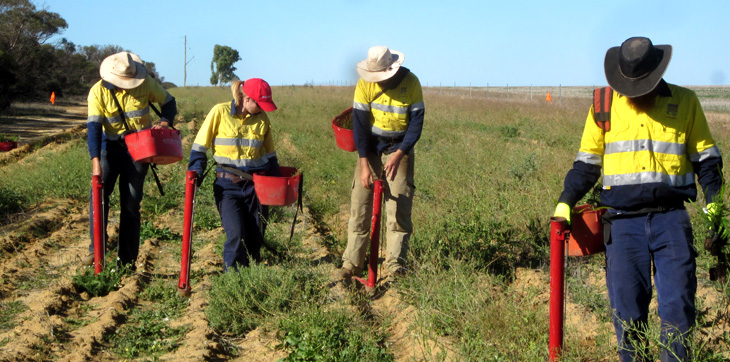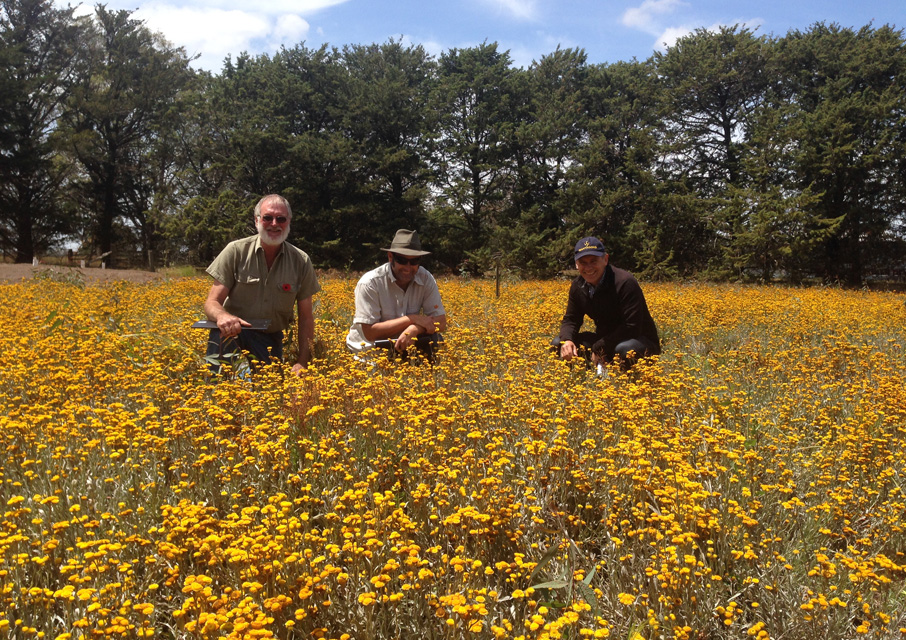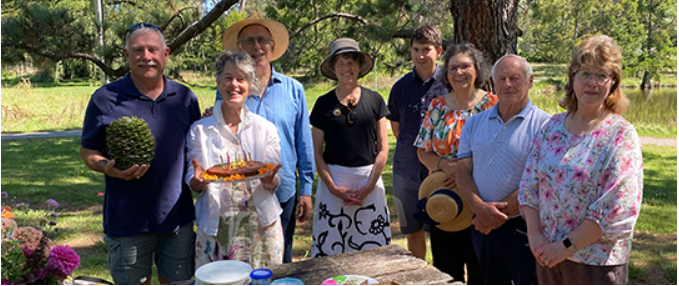Borage and strawberries make excellent companions
October 30, 2017ACT for Bees Summer Buzz Newsletter
February 15, 2018Bee safe gardens on the horizon as Bunnings will stop selling neonicotinoid treated plants.
 Welcome to 2018 which began with the very welcome news of Bunnings decision to phase out the sale of neonicotinoid pesticide based garden products by the end of the year. And they are going further by working closely with their plant suppliers and will stop using neonicotinoid pesticides on garden plants. Bunnings/ Homebase is a UK store and the decision will apparently also take place in Bunnings stores in Australia. Bunnings made the decision in November last year in response to new scientific evidence of declining bee and pollinator populations in the UK. A week earlier, the UK Environment Secretary Michael Gove also made a surprise announcement that there would be tougher restrictions on neonicotinoid pesticides “as scientific evidence now suggests the environmental risks posed by neonicotinoids- particularly to our bees and pollinators – are greater than previously understood…We cannot afford to put our pollinator populations at risk” The 2014 UK National Pollinator Strategy, which outlines how to improve the state of bees and other pollinating insects and how to monitor progress will also be updated.
Welcome to 2018 which began with the very welcome news of Bunnings decision to phase out the sale of neonicotinoid pesticide based garden products by the end of the year. And they are going further by working closely with their plant suppliers and will stop using neonicotinoid pesticides on garden plants. Bunnings/ Homebase is a UK store and the decision will apparently also take place in Bunnings stores in Australia. Bunnings made the decision in November last year in response to new scientific evidence of declining bee and pollinator populations in the UK. A week earlier, the UK Environment Secretary Michael Gove also made a surprise announcement that there would be tougher restrictions on neonicotinoid pesticides “as scientific evidence now suggests the environmental risks posed by neonicotinoids- particularly to our bees and pollinators – are greater than previously understood…We cannot afford to put our pollinator populations at risk” The 2014 UK National Pollinator Strategy, which outlines how to improve the state of bees and other pollinating insects and how to monitor progress will also be updated.
 The Australian Government is more concerned about biosecurity in the event of Varroa mite and put $3m into boosting bee surveillance at 32 of Australia’s busiest ports. The University of Adelaide has teamed up with South Australian industry groups to identify the most useful plants used by pollinators and help farmers and growers map pollinator corridors on their farms to support the health of local native pollinators. This initiative is an excellent move as it will improve biodiversity on farms and also acknowledges the important role that local pollinators can do.
The Australian Government is more concerned about biosecurity in the event of Varroa mite and put $3m into boosting bee surveillance at 32 of Australia’s busiest ports. The University of Adelaide has teamed up with South Australian industry groups to identify the most useful plants used by pollinators and help farmers and growers map pollinator corridors on their farms to support the health of local native pollinators. This initiative is an excellent move as it will improve biodiversity on farms and also acknowledges the important role that local pollinators can do.
“An important outcome from the project will be planting guides and a web-based tool which will enable users to map vegetation plantings around their crops that will provide the best habitat for pollinators in order to maximise productivity gains,” says project co-leader Professor Andrew Lowe, Chair of Plant Conservation Biology in the University’s Environment Institute. “This project is a great example of how the University is using innovative thinking to improve productivity and sustainability in cropping and food.”
Project partners include Lucerne Australia, Apple and Pear Growers of SA, Trees for Life, O’Connor NRM,  Primary Industries and Regions SA (PIRSA), Department of Environment, Water and Natural Resources; Almond Board of Australia, Native Vegetation Council, Greening Australia, South Australian Apiarist Association, various NRM boards and Rural Industries Research and Development Corporation.
Primary Industries and Regions SA (PIRSA), Department of Environment, Water and Natural Resources; Almond Board of Australia, Native Vegetation Council, Greening Australia, South Australian Apiarist Association, various NRM boards and Rural Industries Research and Development Corporation.
Bees and other pollinators health is slowly being acknowledged as vital for the health and wellbeing of the whole ecosystem. Have a look at ACT for Bees Gardening page to see natural methods of pest control for your garden and ways to keep the balance and biodiversity in our gardens and community spaces.
Thanks to Greening Australia for the bush regeneration photographs. Great pollinator forage in the field above!



